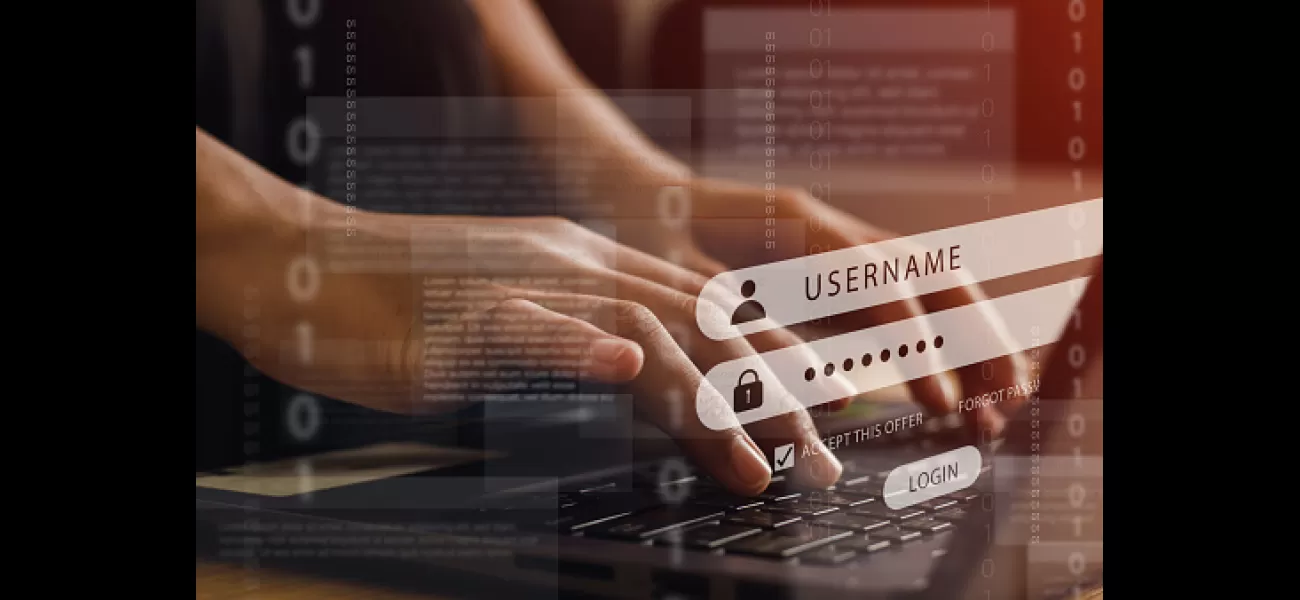Is your password at risk of being hacked in just a minute?
Do you have a safe password?
June 20th 2024.

When it comes to your password, how confident are you in its security? It may seem convenient to use the same password for all of your accounts, after all, it's easier to remember that way. However, this also means that if a hacker were to crack that one password, they would have access to all of your accounts in less than 60 seconds. In fact, according to cybersecurity firm Kaspersky, 45% of passwords can be easily guessed within a minute, while another 14% can be cracked within an hour. Only 4% of passwords take more than a year to break, making them truly hacker-resistant.
The threat of cybercriminals is only increasing, with over 32 million attempts made in 2023 to uncover personal passwords. This means that your account could be at risk, especially if your password is easy to guess. So what makes a password vulnerable? Along with the obvious choices like "password" or "123456", many passwords contain words from the dictionary, which greatly reduces their strength. Another common mistake is using easily identifiable names, like "Ahmed" or "Nguyen". The most popular words used in passwords are "forever", "love", "google", "hacker", and "gamer", while common passwords include "qwerty12345" and "admin". Even seemingly strong combinations are not completely random and can be guessed by algorithms.
Yuliya Novikova, the head of digital footprint intelligence at Kaspersky, explains that as humans, we tend to create passwords that are "human", using words from our native language or names and numbers that have meaning to us. However, the most secure solution is to use a password manager to generate a completely random and unique password for each account. These password managers securely store your information, providing comprehensive protection for your data.
But what should you do if your password has already been compromised? The first step is to change the password of the hacked account, as well as any other accounts that may share the same password. This could include banking websites, social media platforms, email accounts, and any other sites that have your financial information linked to them. It's also important to monitor your bank statements for any unusual activity and contact your bank immediately if you notice anything suspicious.
If your social media or email password has been stolen, you should try to log into your account and change the password. If you are unable to log in, it's important to notify as many people as possible to avoid falling victim to any potential scams. You should also report the compromised account to the platform.
To prevent your password from being easily guessed, Kaspersky recommends adding numbers or capital letters and symbols like £, $, @, or ! to make it more complex. It's also important to avoid using personal information like birthdays, names of family members, pets, or your own name in your password. Using a password manager can also help you memorize just one long master password, and for added security, you can enable two-factor authentication for an extra layer of protection.
In conclusion, it's crucial to have a strong and unique password for each of your accounts to protect yourself from cyber threats. Taking simple steps like using a password manager and avoiding easily guessable information can greatly strengthen the security of your online accounts. Stay vigilant and stay safe online.
The threat of cybercriminals is only increasing, with over 32 million attempts made in 2023 to uncover personal passwords. This means that your account could be at risk, especially if your password is easy to guess. So what makes a password vulnerable? Along with the obvious choices like "password" or "123456", many passwords contain words from the dictionary, which greatly reduces their strength. Another common mistake is using easily identifiable names, like "Ahmed" or "Nguyen". The most popular words used in passwords are "forever", "love", "google", "hacker", and "gamer", while common passwords include "qwerty12345" and "admin". Even seemingly strong combinations are not completely random and can be guessed by algorithms.
Yuliya Novikova, the head of digital footprint intelligence at Kaspersky, explains that as humans, we tend to create passwords that are "human", using words from our native language or names and numbers that have meaning to us. However, the most secure solution is to use a password manager to generate a completely random and unique password for each account. These password managers securely store your information, providing comprehensive protection for your data.
But what should you do if your password has already been compromised? The first step is to change the password of the hacked account, as well as any other accounts that may share the same password. This could include banking websites, social media platforms, email accounts, and any other sites that have your financial information linked to them. It's also important to monitor your bank statements for any unusual activity and contact your bank immediately if you notice anything suspicious.
If your social media or email password has been stolen, you should try to log into your account and change the password. If you are unable to log in, it's important to notify as many people as possible to avoid falling victim to any potential scams. You should also report the compromised account to the platform.
To prevent your password from being easily guessed, Kaspersky recommends adding numbers or capital letters and symbols like £, $, @, or ! to make it more complex. It's also important to avoid using personal information like birthdays, names of family members, pets, or your own name in your password. Using a password manager can also help you memorize just one long master password, and for added security, you can enable two-factor authentication for an extra layer of protection.
In conclusion, it's crucial to have a strong and unique password for each of your accounts to protect yourself from cyber threats. Taking simple steps like using a password manager and avoiding easily guessable information can greatly strengthen the security of your online accounts. Stay vigilant and stay safe online.
[This article has been trending online recently and has been generated with AI. Your feed is customized.]
[Generative AI is experimental.]
0
0
Submit Comment





